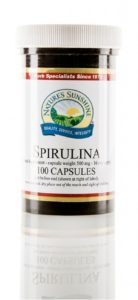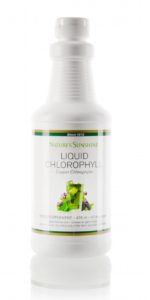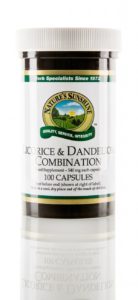We all are forced to stare at screens these days. Whether it is our mobile phones, tablets or work computers, we all have to look at a screen, often for long periods at a time, increasing our exposure to high energy blue light.
Lutein is a xanthophyll and one of 600 known naturally occurring carotenoids. Lutein is synthesized only by plants and like other xanthophylls is found in high quantities in green leafy vegetables such as spinach, kale and yellow carrots. In green plants, xanthophylls act to modulate light energy and serve as non-photochemical quenching agents to deal with triplet chlorophyll (an excited form of chlorophyll), which is overproduced at very high light levels, during photosynthesis.
Lutein is obtained by animals directly or indirectly, from plants. Lutein is apparently employed by animals as an antioxidant and for blue light absorption. Lutein is found in egg yolks and animal fats. In addition to colouring yolks, lutein causes the yellow colour of chicken skin and fat, and is used in chicken feed for this purpose. The human retina accumulates lutein and zeaxanthin. The latter predominates at the macula lutea while lutein predominates elsewhere in the retina. There, it may serve as a photoprotectant for the retina from the damaging effects of free radicals produced by blue light. Lutein is isomeric with zeaxanthin, differing only in the placement of one double bond.
An exciting new peer reviewed publication based on ongoing research on macular carotenoids from the University of Georgia demonstrates that supplementation with lutein and zeaxanthin isomers can protect against a growing issue among the general population — the undesirable effects of prolonged exposure to high-energy blue light emitted from digital screens of computers, tablets and smartphones. Lutein and zeaxanthin isomers — known as the macular carotenoids — are natural filters of high-energy blue light. High-energy blue light reaches deep into the eye and can harm the macula — the region of the eye responsible for highest visual acuity– by promoting the production of free radicals. Short-term effects can cause eye fatigue while long-term exposure can lead to a progressive loss of visual function.
The B.L.U.E. study (an acronym for Blue Light User Exposure) was the subject of a recent paper, “Effects of macular carotenoid supplementation on visual performance, sleep quality, and adverse physical symptoms in those with high screen time exposure,” published in Foods 2017 (Stringham, et al.). This is the first study to examine the impact of macular carotenoids supplementation to protect visual health and performance, improve sleep quality and reduce eye strain and fatigue during prolonged exposure to blue light emitting digital screens.
“The effects of blue light on vision isn’t new. However, 10 years ago we saw a surge in near field technology holding or using devices within arm’s length, resulting in increased complaints around high screen use — neck pain, eye strain and fatigue, headaches.” Stated Dr. James Stringham, the lead author of the paper. “This has led to an opportunity with supplementation — a simple mode of therapy with specific nutrients that have a wealth of benefits as they deposit in the eye. After six months of supplementation we saw significant reduction around 30% in these symptoms and significant improvement in measures of visual performance and protection.”
The B.L.U.E. study was a 6-month randomized, double-blind, placebo-controlled supplementation trial with 48 healthy, young adults with screen time exposure of at least 6 hours daily. Subjects were evaluated at baseline, 3-months and 6-months for MPOD (Macular Pigment Optical Density) and markers of visual performance including contrast sensitivity, photostress recovery and disability glare. Sleep quality, which is affected by blue light exposure, and physical indicators of excessive screen use were also measured. The results show that supplementing with Lutemax 2020 significantly improved macular pigment optical density, visual performance and indicators of excessive screen use, including eye strain and fatigue and headache frequency. Sleep quality also improved significantly.
“At home, work and school your eyes are focused on digital devices for long periods of time. In many cases we spend more time staring into digital screens than sleeping.” said Abhijit Bhattacharya, President, OmniActive Health Technologies Ltd. “Even Children, whose eyes are more susceptible to the harmful effects of blue light, spend almost half their day staring into screens. This study is groundbreaking – the first of its kind. And builds on an impressive body of evidence… The BLUE study has huge implications because it addresses the growing concern of prolonged ‘screen time’ that is happening across all age groups and offers a simple solution to protect the eyes in this digital age.”
Source: https://www.eurekalert.org/pub_releases/2017-07/oht-la071017.php
Some foods are considered good sources of the nutrients:
| Product | Lutein/zeaxanthin (micrograms per hundred grams) |
|---|---|
| nasturtium (yellow flowers, lutein levels only) | 45,000 |
| kale (raw) | 39,550 |
| kale (cooked) | 18,246 |
| dandelion leaves (raw) | 13,610 |
| nasturtium (leaves, lutein levels only) | 13,600 |
| turnip greens (raw) | 12,825 |
| spinach (raw) | 12,198 |
| spinach (cooked) | 11,308 |
| swiss chard (raw or cooked) | 11,000 |
| turnip greens (cooked) | 8440 |
| collard greens (cooked) | 7694 |
| watercress (raw) | 5767 |
| garden peas (raw) | 2593 |
| romaine lettuce | 2312 |
| zucchini | 2125 |
| brussels sprouts | 1590 |
| pistachio nuts | 1205 |
| broccoli | 1121 |
| carrot (cooked) | 687 |
| Maize/corn | 642 |
| egg (hard boiled) | 353 |
| avocado (raw) | 271 |
| carrot (raw) | 256 |
| kiwifruit | 122 |
It may be worth supplementing with both lutein and a carotenoid blend to help protect against high energy blue light. see the products below.
Keep healthy,
Scott
Spirulina is a blue-green algae that grows in warm, alkaline fresh waters around the world. It is one of the few plant sources of vitamin B12, and is rich in protein, vitamins, minerals, and antioxidants. It contains nutrients including B complex vitamins, beta-carotene, and vitamin C and E.
- Spirulina is recognised to be the most complete food source known. This ‘superfood’ has an amazing array of nutrients, and the highest protein content of any natural food.
- Spirulina is also rich in essential fatty acids, carotenoids and a full spectrum of minerals like calcium, iron, magnesium, manganese, potassium and zinc. It is a source of eight essential amino acids, as well as minerals, chlorophyll, natural plant sugars, trace minerals and enzymes.
Nature’s Sunshine’s Liquid Chlorophyll is naturally flavoured with spearmint oil and can be enjoyed as a refreshing drink, leaving the breath minty fresh.
- Chlorophyll is non-toxic, and safe for people of all ages. It’s ideal for everyday use, and is a valued companion to any whole body nutritional cleanse programme. Suitable for vegetarians and vegans.
- Chlorophyll is the green pigment in plants that harnesses the sun’s energy in photosynthesis. It performs metabolic functions in plants such as respiration and growth.
- The mulberry and the alfalfa plant, from which Nature’s Sunshine’s chlorophyll comes, are excellent sources of chlorophyll.
LICORICE & DANDELION COMBINATION
- Licorice is popular in many Asian herbal combinations to balance the other herbs, and was used by Buddhist monks to clear the mind before meditation.
- This herbal formula was formulated with the the nutritional needs of the digestive system in mind. Licorice contains triterpenoid saponins, flavonoids, isoflavonoids, magnesium, silicon, sodium and other beneficial constituents.
- Dandelion also contains sesquiterpene lactones and has a long tradition of use in Europe for liver and kidney health. Safflower and Horseradish are added for their nutritional benefits.
- This formula contains natural sources of Chromium, Iron, Magnesium, Potassium, Silicon and Sodium.



